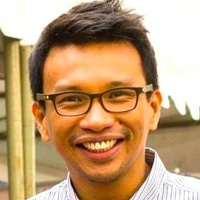
How can it be that one feels so needed and yet at the same time unwanted?
This is a question that strikes at the heart of people's realities today.
Relationships break apart and friendships come to an end. Even conversations – those that at one point gave us so much inspiration – grind to a halt.
The pain of being alone is all too real. Yet this pain has become all too normal, so much so that many don't even feel it anymore.
No, this pain is not a monopoly of the mentally ill. Often we associate loneliness with clinical depression. But the reality is far more complex.
Is it because people change? Maybe, that's why they walk away. Is it because wonder is innately insatiable? Maybe, that's why people find someone else yet again. Is it because "forever" does not really exist? Maybe, that's why we covet it.
The sociology of loneliness
It might seem unusual that a sociologist now writes about loneliness. Sociologists, after all, are excited by human relationships. But the loss of relationships is what gave birth to sociology. The onset of modernity during the industrialization period dismantled old relationships, only to replace them with ephemeral ones.
Indeed, much of our relationships are not about common interests. They are for the most part about our interdependence on each other.
We need teachers to educate our children. We need doctors to keep us healthy. We need call center agents to answer our queries. We need security guards to man our subdivisions. We need drivers to bring us places.
In these manufactured communities, the value of other people becomes largely economic. They are only valuable if they have something to offer us. Think about it: people were called human beings before they were called human resources.
Sociologists refer to this functional interdependence by using the German word for impersonal ties – Gessellschaft.
Unfortunately, the rise of impersonal ties also means that the group of people who really matter to us becomes smaller and smaller.
At the same time, these intimate relationships – families and deep friendships – are at the mercy of the labor market. In the Philippine context, that labor market is global. How many of us have been left behind by OFW parents?
Functional dependencies and smaller intimate relationships. No wonder that we can feel wonderfully needed at times but terribly unwanted at others.
What then are we left with?
The deepest aspiration now of the modern urbanite is to travel, consume, and find one's passion in life. Whether or not he can afford these is another issue. Nevertheless, all these, while noble, are about the self and the joys it looks for.

That is what we are left with.
But there is a caveat. At its core, how lonely this aspiration must be.
No wonder then that in the company of cheerful dancing, merry drinking, endless traveling, and fearless sexual encounters, one can still feel so alone.
In this period, the sociologist Zygmunt Bauman claims that "there are no permanent bonds, and any that we take up for a time must be tied loosely so that they can be untied again, as quickly and as effortlessly as possible."
Alas, loneliness is at the very heart of the modern condition.
The way out
Humanity yearns for certainty. That is what underpins much of people's belief in God, the aspiration to be financially stable, and above all, the desire to be loved.
But the modern condition as we know it today simply renders it more visible and desirable. The only problem is that certainty in itself has become elusive. And so we can only daydream about "forever".
But to daydream is not enough.
In writing this piece, I can only hope that we start talking about the pain of being alone. With each other.
Far too often we leave it in the soul's interstices of deniability. But talking about it is the first step towards not being afraid of it.
And then maybe, just maybe, the pain of being alone won't be so deep anymore. – Rappler.com
Jayeel Serrano Cornelio, PhD, is the a sociologist at the Ateneo de Manila University. He was once a postdoctoral research fellow at the Max Planck Institute for the Study of Religious and Ethnic Diversity in Germany. Please share with him your thoughts on Twitter @jayeel_cornelio.